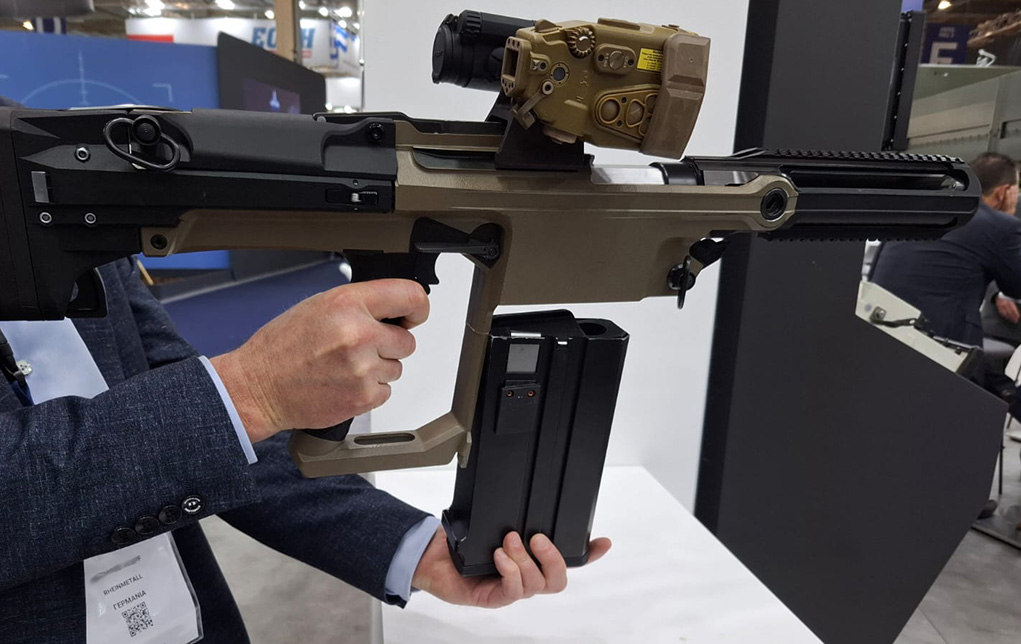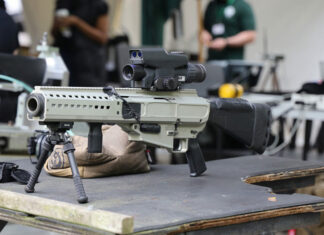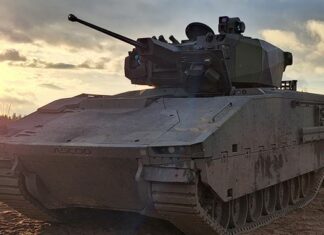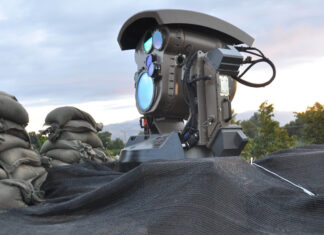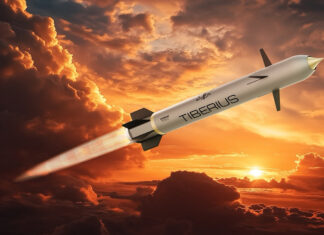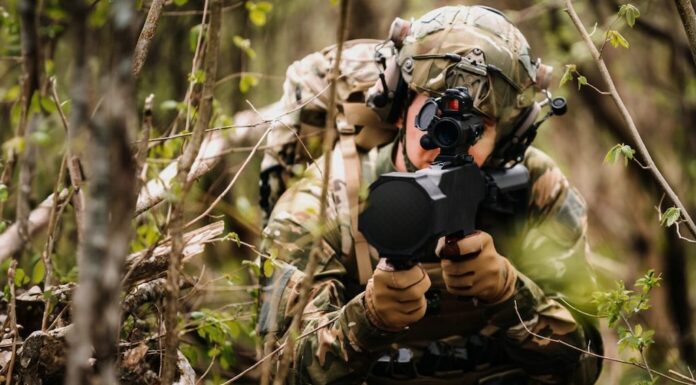At this year’s DEFEA defense exhibition in Athens, Rheinmetall showcased the latest evolution of its Squad Support Weapon, the SSW40, a semi-automatic magazine-fed grenade launcher that bridges the gap between traditional 40mm launchers and precision squad-level support weapons. The version on display represents a significant step forward since the system’s previous public appearance at DSEI 2023.
From Concept to Combat-Ready
Originally introduced as a concept demonstrator, the SSW40 has matured into a fully functional platform designed to fire both low-velocity (LV) and medium-velocity (MV) 40mm grenades. The upgraded configuration features several enhancements aimed at improving accuracy, versatility, and combat effectiveness.
With an effective range of 250 meters for LV grenades and 600 meters for MV, the weapon gives infantry units a significant reach advantage. In comparison, its maximum range extends up to 900 meters, depending on the ammunition type. Rheinmetall has engineered the weapon to deliver consistent firepower while maintaining manageable recoil and mobility—essential for dismounted units.
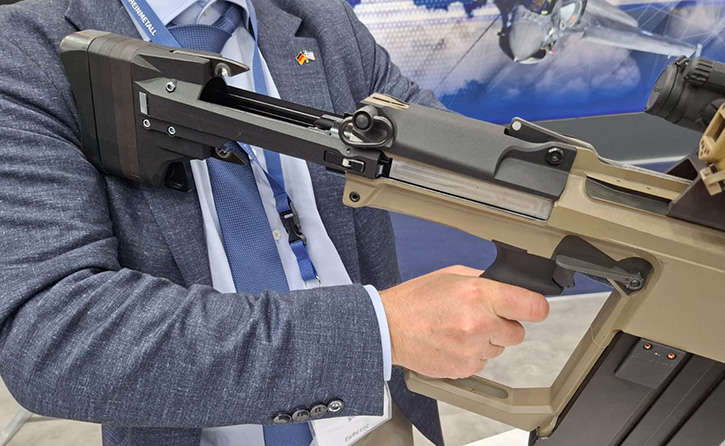
Magazine-Fed Firepower
A distinguishing feature of the SSW40 is its magazine-fed system, setting it apart from single-shot or revolving-cylinder launchers. Two magazine configurations are available, allowing for three or five-round capacities. With one round chambered and a three-round magazine inserted, the fully loaded weapon weighs approximately 6 kilograms—well within the acceptable load for infantry operations. Weight savings were achieved through innovative engineering, which is reflected in the ‘open barrel’ design. Range setting has also been simplified with a single dial setting for ammunition type and range.
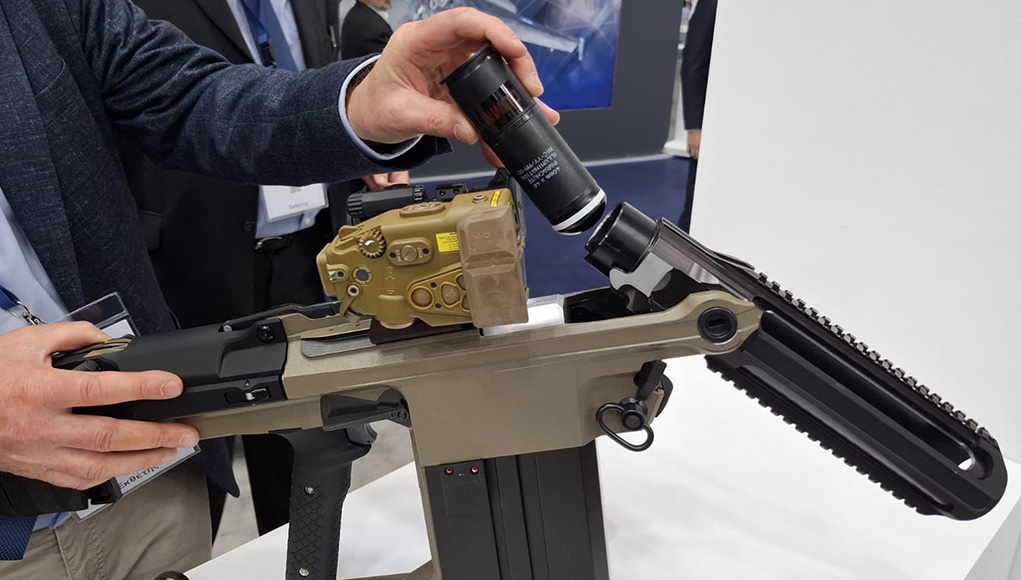
Dual-Sighting and Fire Control System Integration
The version displayed at DEFEA was fitted with dual sighting systems: a standard optical sight and an advanced Fire Control System (FCS), which is currently under development. The FCS features a red-dot reticle that dynamically adjusts to reflect real-time range compensation based on data from a built-in laser rangefinder. The FCS improves first-round hit probability by automatically modifying the aim point, especially at extended ranges or against moving targets.
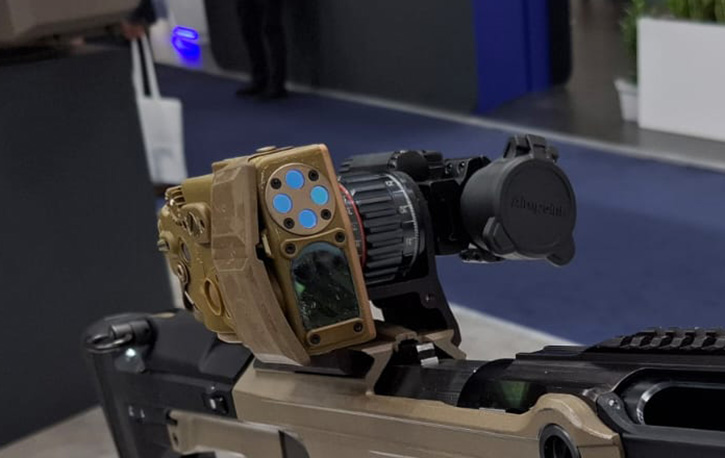
Programmable Airburst Grenade Development Underway
Rheinmetall is also developing a programmable airburst grenade optimized for use with the SSW40. Designed to engage defilade targets or enemies under cover, this munition will receive electronic fuze-setting commands via an infrared link immediately after exiting the barrel. Integrating this feature with the FCS promises to extend the SSW40’s effectiveness in complex operational environments.
Market Outlook
According to Rheinmetall officials, the company is preparing to conduct live demonstrations of the SSW40 for international customers in the coming month. These trials will focus on the system’s compatibility with standard 40mm grenades, with programmable munitions expected to follow later in the development cycle.
The SSW40 is positioned to fill a growing capability gap in modern infantry squads, offering enhanced lethality with precision engagement and a greater standoff range than legacy grenade launchers. Its integration of fire control and programmable munitions reflects the broader industry shift toward networked, smart-enabled infantry weapons.

